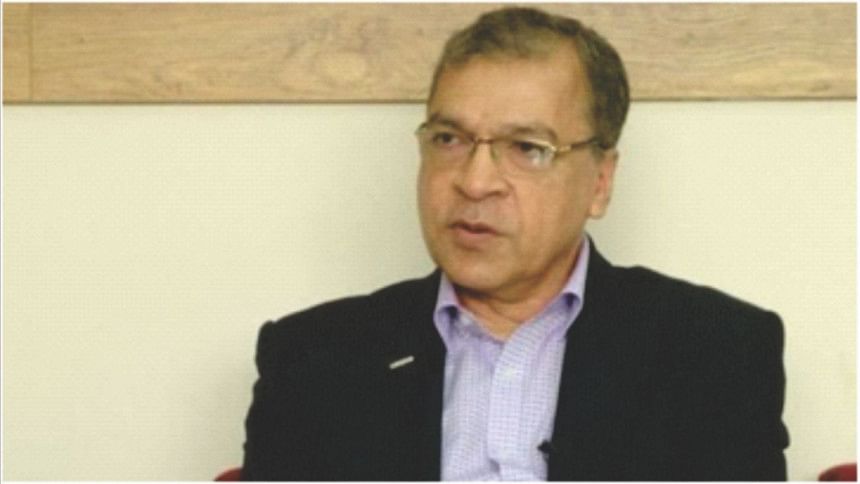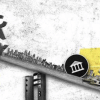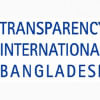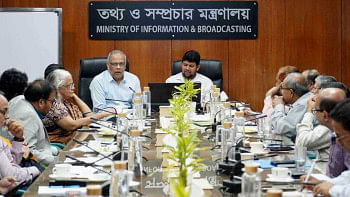Corruption is anti-development

How would you describe the state of corruption in our country and what is the biggest impediment to fighting it?
Corruption is pervasive in Bangladesh, a key challenge against development and social transformation. Corruption is so deep and wide at both micro and micro levels that it threatens to become a way of life. Corruption is a global problem. It exists in all countries of the world—big or small, developed or developing— which is exactly why the UN Convention against Corruption was adopted on December 9, 2003. The Government of Bangladesh has recently set a great precedence for other Member States of the UN by deciding to officially observe the International Anti- Corruption Day. We take it as an example of high level political will to fight corruption in Bangladesh.
The biggest impediment against effective corruption control in Bangladesh, as in case of most other countries where corruption is pervasive, is that political commitment remains far from truly enforced without fear or favour, which allows corruption to be often condoned and protected. When any crime remains unpunished, and when the criminals, in this case the corrupt, are allowed to get away and enjoy political patronage it is only natural that the menace will flourish further.
We are experiencing one of the highest growth rates in the country. How is this possible if corruption is as high as TIB says?
Countries can, and do grow in spite of the worst forms of corruption. The key issue is the cost of corruption. Bangladesh has indeed been maintaining commendably high rates of growth of GDP in the range of 6-7 percent annually for over two decades now. The question is whether we could have achieved more. There are strong reasons to believe that subject to effective corruption control, double-digit growth is well within Bangladesh's reach.
We could have achieved at least 2-3 percent higher annual GDP growth if corruption could be moderately controlled. This is according to credible research and referred to by the finance minister. The enormity of implications of 10 percent GDP growth is self-explanatory. The other dimension of cost of corruption is that while its burden falls upon everyone it is substantially higher for households in lower income category than those with higher income.
Corruption has an in-built bias against the poor, disadvantaged and low-income sections of the society. They are directly affected by the increased cost of public services for bribery and limited or even lack of access to services because of lack of capacity to pay bribe.
Aside from economic, what are some other major societal effects of corruption? What is the importance of bringing these issues in particular, into the public discourse?
Corruption is a menace that causes wastage and plunder of public resources; it undermines the prospect of building a merit-based society by compromising a level playing field in various professions including public service, business and even politics. It distorts competitive business and public contracting, and damages investment environment.
Corruption increases the cost of investment and entrepreneurship. It lowers the quality and effectiveness of public expenditures; reduces revenue collection and promotes rent-seeking.
Corruption is increasingly linked to violation of human rights and breach of rule of law. Corruption kills innocent people as we have seen in case of Rana Plaza and many more such tragedies in Bangladesh.
Corruption causes underperformance in governance and undermines the government's ability to deliver. It generates a sense of disempowerment among people which in turn leads to accepting corruption as a way of life and causes erosion of values and ethics.
It is a crime that undermines social cohesion, political stability and democratic progress. Corruption feeds into zero-sum game of politics especially when office of politics and government are viewed as a mandate to enjoy personal benefit and enrichment. It undermines the infrastructure of democratic accountability by affecting proper functioning of institutions like parliament, judiciary, administration, law enforcement agencies, election commission, anti-corruption commission, etc., which become instruments for monopolisation of political space. The state structure can thus be exposed to kleptocratic capture. Corruption erodes trust of citizens in leadership, public offices and institutions.
The importance of bringing these to public discourse is enormous The more the people are informed about the deleterious implications of corruption the greater is the possibility of informed and effective public demand to control corruption and bring the perpetrators to justice. It can also lead to increased moral and political obligation of the government, the Anti-Corruption Commission and other stakeholders to be responsive and take action against corruption. It also emboldens people within the Government and political space who can be change agents.
Sustained discourse on negative implications of corruption can function as an antidote to the denial syndrome which is one of the reasons why corruption flourishes and gets protected. We have seen how highly placed individuals who in reaction to our reports accused us as motivated, baseless and ignorant or even conspiratorial and seditious, subsequently used data from the same reports to express frustration and helplessness about the state of corruption.
Sustained reporting and knowledge-based campaign can lead to legal, policy and institutional reforms. The fact that there is a dedicated institution called Anti-Corruption Commission, that Bangladesh is a State Party to the UN Convention against Corruption, that we have the Right to Information Act and Whistleblower Protection Act, that we have the National Integrity Strategy, that the Government has decided to officially observe the International Anti-Corruption Day are but a few examples of the positive outcomes of keeping the anti-corruption discourse live.
What are the tested ways to fight corruption in a developing country like ours?
Corruption control is difficult, though not at all impossible. In our understanding there are four interrelated elements of an effective anti-corruption strategy. First, corruption control must be at the core of political agenda of government and politics. This commitment to control and prevent corruption is not enough to be only in paper and words. It must be enforced without fear or favour to anyone.
Secondly, the corrupt must be punished in the due process irrespective of social, economic and political status or identity. To create effective deterrence, there must be robust and credible evidences all around that corruption is not a stepping stone for illegal accumulation of wealth. Corruption will never be controlled if the corrupt, especially those with links with politically or otherwise powerful quarters, instead of being subjected to accountability, enjoy impunity.
Thirdly, the key institutions of democratic accountability or the national integrity system (NIS) must be able to function independently and effectively as mandated by law. The collective integrity strength of the ACC, parliament, executive, judiciary, law enforcement agencies, Office of the Comptroller and Auditor General, auditor general, media and private sector holds the key to rule of law, accountable governance and corruption control. If the neutrality, objectivity, integrity and effectiveness of these institutions are compromised or if they lend themselves to be used for promoting partisan political agenda of the ruling authority, corruption will flourish.
Fourthly, it is equally important that people stand up against corruption. A robust people engagement programme, especially youth engagement is extremely important to fight corruption. It is the people who have to create the demand against corruption; demand that political leaders develop and enforce the political will; demand that the corrupt are brought to justice; and demand effective institutions. Finally, it is the responsibility of the Government to shun a "shoot the messenger" syndrome and create conditions in which people can raise such voice and demand against corruption free from fear, inhibition or intimidation.










Comments